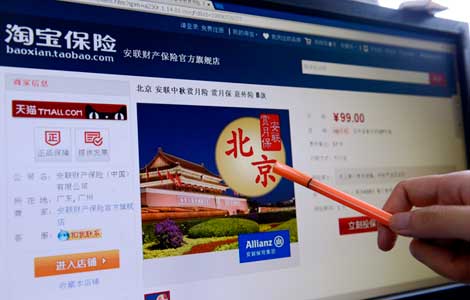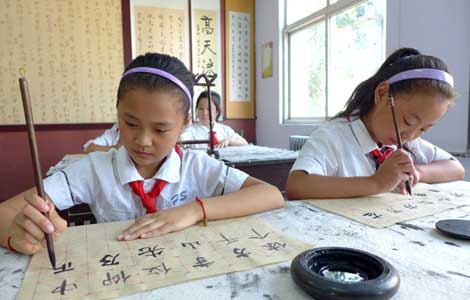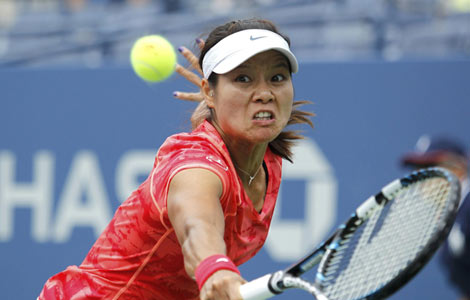Fighting corruption by legal means
Updated: 2013-08-28 07:55
(China Daily)
|
||||||||
Editor's note: The following is a translation of Tuesday's People's Daily editorial on the Bo Xilai trial.
Bo Xilai, former Party secretary of Chongqing and a former member of the political bureau, was openly tried at the Jinan Intermediate People's Court, Shandong province, from Thursday to Monday, on the charges of bribery, embezzlement and abuse of power.
All court proceedings were conducted in an open and transparent manner and in accordance with China's laws, and both the procedure and substance of the case can stand the test of facts, evidence and the law.
The trial of Bo has once again demonstrated the distinct attitude of the Party and the nation toward fighting corruption and their firm determination to fight corruption in a legal way.
The correct procedure on legal track and by legal spirit has been followed from the very beginning: from depriving him of his Party membership and his removal from official posts, to his transfer to the judicial process and the appointment of the Jinan court to hear his case, to his trial in an open and transparent manner. All these are a reflection of the legal approach of the Party in the fight against corruption and a forcible show of China's judicial progress.
During the five-day trial, media organizations and people from various circles were allowed to hear the court proceedings and there were timely releases of information via the Internet and social media: The court actively explored a new way of judicial openness, as indicated by its appointment of a spokesperson and the use of an official micro blog to reveal timely information to the public and ensure the case was handled in an open and transparent manner. The court also informed Bo of his rights as the defendant and guaranteed his rights were exercised in accordance with the law.
During the trial, Bo and his lawyers fully exercised their right to defense, from making arguments of their own to disputing prosecutors' evidence. In particular, the Jinan intermediate court held a pre-trial session, in which it listened to opinions from both prosecutors and the defending party on a series of issues, from the case's jurisdiction and the challenge system to the manner in which the trial will be conducted, confirming the names of witnesses and the removal of illegal evidence. All these helped overcome contentious points of the court proceedings and disputes.
With regard to the major charges against Bo, the prosecution had evidence to back up their case, and the court heard the testimonies of witnesses. The trial has fully embodied the spirit of the country's newly revised Criminal Procedure Law, which has been a big step forward in improving judicial procedures and guaranteeing defendants' procedural rights.
With regard to the three charges filed by prosecutors against Bo, strict legal procedures have been followed, from conducting thorough investigations and acquiring evidence to presenting the evidence to the court for confirmation, to discussion and debates between prosecutors and the defendant. These have fully embodied the country's judicial concept that judges are loyal to facts and the law, and its pursuit of justice in both procedure and substance.
To bring corrupt officials to justice has been a consistent and long-cherished requirement for the strict self-governance of the Party. The trial of Bo fully demonstrates that China has in place both Party disciplines and laws to deal with corruption.
The essence of corruption is the abuse of power and thus the core of the fight against corruption is to put in place a restraint mechanism and monitoring regime over power. With a forcible restraint mechanism, power will be exercised in a legal way. To handle corruption cases within a legal framework and bring the anti-graft campaign onto the track of institutionalization remains a basic direction for the Party to fight corruption and promote clean governance.
The series of major corruption cases that have been handled recently is a clear indication that anyone involved in corruption, no matter their rank, will be brought to justice. Such a consensus has been substantiated through all of the Party' and the country's governance and anti-corruption measures.
The 18th National Congress of the CPC, held in late 2012, stressed that China will "more value the important role that rule of law will play in national governance and social management, to maintain the unity, dignity and authority of its legal system".
If the country sticks to a legal approach and the principle of rule of law in fighting corruption, it will make people feel the prevalence of equality and justice in every judicial case, check the emergence of extralegal mentality among some, prevent the abuse of power and safeguard the integrity of the law.
(China Daily 08/28/2013 page8)

 US preparing for probable strike on Syria
US preparing for probable strike on Syria
 Putting money on full moon
Putting money on full moon
 Language list aims to pass on Chinese culture
Language list aims to pass on Chinese culture
 Cancer patient delivers healthy baby
Cancer patient delivers healthy baby
 Chinese navy starts escort mission at Gulf of Aden
Chinese navy starts escort mission at Gulf of Aden
 McGrady retires, considers career in China
McGrady retires, considers career in China
 Li Na breezes into US Open second round
Li Na breezes into US Open second round
 China and India set to resume military drills
China and India set to resume military drills
Most Viewed
Editor's Picks

|

|

|

|

|

|
Today's Top News
Affluent Chinese pursue overseas properties
Sino-Japanese meeting at G20 ruled out
New time limits for visa processing
China joins global effort to combat tax evasion
Party's plenum to focus on reform
Chinese negotiator in DPRK
Nursing homes to give Tibetans care
WeChat users under scrutiny
US Weekly

|

|







